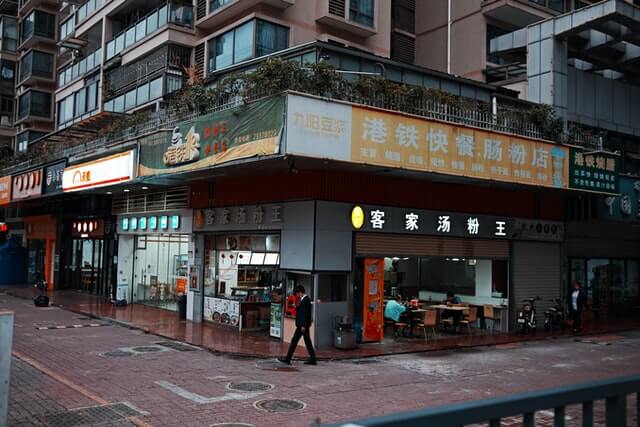Find China Supplier’s Legal Name in Chinese to Avoid Scams
If you find a China supplier’s legal name in Chinese, you can initiate an action before a court or file a complaint against it. If not, you cannot do anything.
All Chinese individuals and enterprises have their legal names in Chinese, and they have no legal or standard names in foreign languages.
In other words, their English names or names in other languages are named by themselves randomly. Usually, it’s hard to back-translate their weird foreign names to their legal Chinese names.
If you don’t know their legal names in Chinese, then you won’t be able to tell the Chinese court whom you are suing. You also cannot tell the Chinese law enforcement agency whom you want to complain of.
Consequently, Chinese courts or government agencies will very likely not accept your case.
So, how could you obtain a China supplier’s legal name in Chinese?
1. You can ask a China supplier to provide its business license.
There are a legal name in Chinese and a unified credit code in its business license
2. You can ask a Chinese supplier to seal the contract with you.
To make a contract valid in China, Chinese companies must seal it. The official seal contains a legal name in Chinese and a unified credit code of the company.
You can check whether your supplier’s legal name in Chinese on the business license is consistent with that on the official seal. Because a scammer may get a scanned version of the business license of another company, although it is difficult for him to get another company’s seal.
Now that you have the China supplier’s legal name in Chinese, what can you do?
1. Find out the company address.
We can figure out its registered address.
Larger Chinese companies generally operate at their registered address, whereas many small companies would not. It means that there is a possibility to find out where the company is.
In this way, on the one hand, we can have the opportunity to check the company on the spot; on the other hand, we can also provide the court with the address for serving the summon in the event of a lawsuit. (See Where is the person I sue?)
2. Find out its operating situation.
We can check whether it is existing, deregistered, or revoked, or whether it is listed as a company with abnormal operations by the government. We can also know if it is involved in a lawsuit or an administrative penalty.
If this company operates abnormally or gets into too much trouble, it usually has difficulty performing the contract with you.
3. Find out its condition of assets.
We have no way to investigate the China supplier’s real estate and deposits in the bank, as this information belongs to commercial secrets or private information in China.
But the information of its registered capital and intellectual property rights is available, which reflects its assets situation to some extent. Especially for Chinese factories, only with a certain scale can they develop intellectual property rights.
We can make a judgment on its fulfilling capacity from these assets.
4. Find its shareholders and executives.
We can find shareholders, directors, supervisors, managers, and legal representatives of the China supplier, as well as their affiliated companies. If these people and the affiliates are strong, the supplier is usually not weak.
Besides, when it becomes insolvent, we can hold its shareholders and executives liable under special circumstances.
5. Find its social media account and website.
In China, social media accounts and websites are registered with real names. So if it leaves a trail on the Internet, we can find it and build a portrait from what it has posted.
Do you need support in cross-border trade and debt collection? CJO Global's team can provide you with China-related cross-border trade risk management and debt collection services, including: (1) Trade Dispute Resolution (2) Debt Collection (3) Judgments and Awards Collection (4) Anti-Counterfeiting & IP Protection (5) Company Verification and Due Diligence (6) Trade Contract Drafting and Review If you need our services, or if you wish to share your story, you can contact our Client Manager: Susan Li (susan.li@yuanddu.com). If you want to know more about CJO Global, please click here. If you want to know more about CJO Global services, please click here. If you wish to read more CJO Global posts, please click here.

Photo by Joshua Fernandez on Unsplash








Pingback: 8 Tips on How to Sue a Company in China – CJO GLOBAL
Pingback: Whom Should I Sue When a China-Related Trade Dispute Arises? – CJO GLOBAL
Pingback: How to Do I Due Diligence on Chinese Companies to Avoid Scams? – CJO GLOBAL
Pingback: China Company Verification and Due Diligence: How to Verify the English Names of Chinese Companies - CJO GLOBAL
Pingback: China Company Verification and Due Diligence: Which Is the Most Accurate English Name for A Chinese Company - CJO GLOBAL
Pingback: Where Should I Sue When a China-Related Trade Dispute Arises? - CJO GLOBAL
Pingback: What Should I Do if the Supplier in China Disappears? - CJO GLOBAL
Pingback: Why You Need to Know Chinese Supplier’s Legal Name in Chinese? - CJO GLOBAL